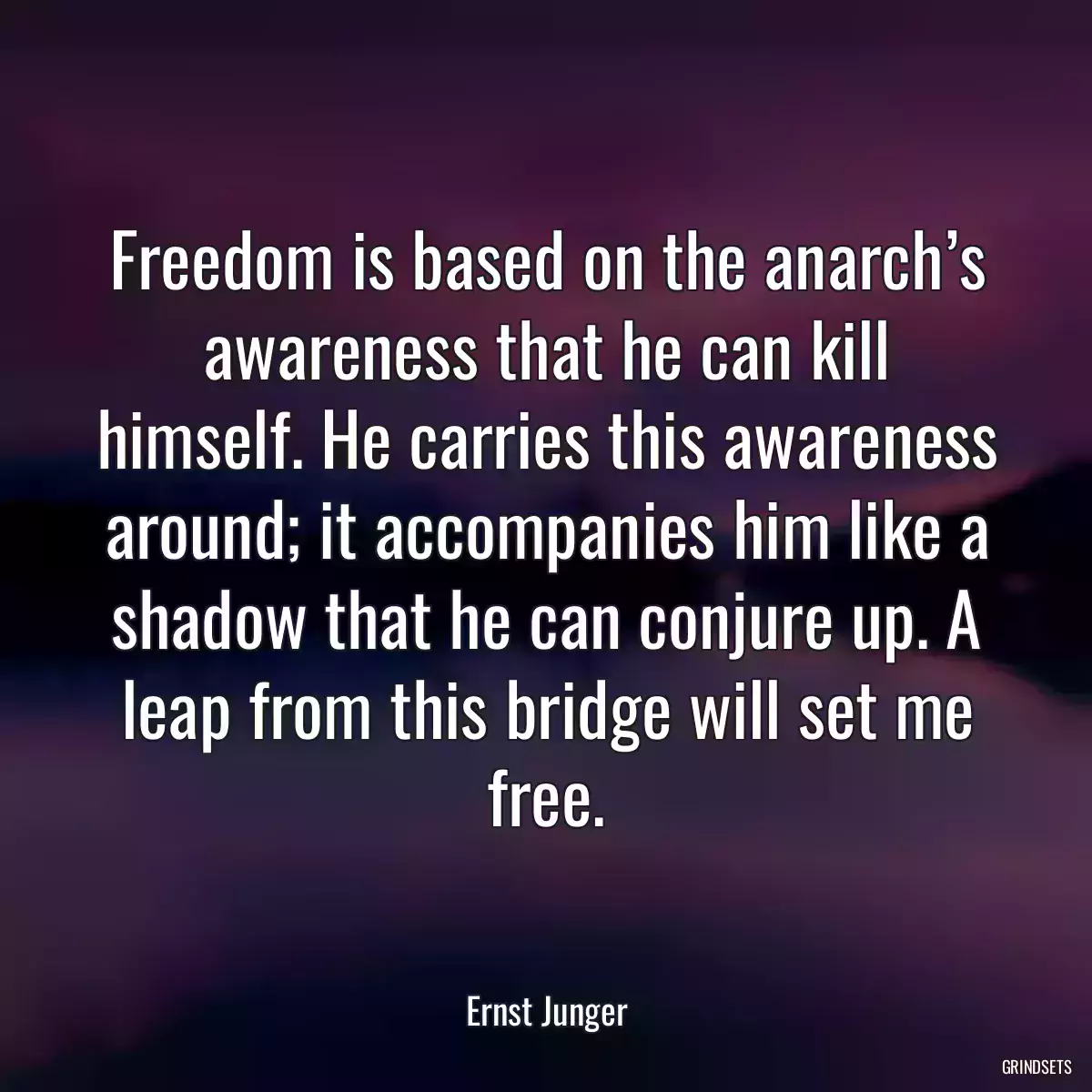
Freedom is based on the ...

More phrases
Courage - a perfect sensibility of the measure of danger, and a mental willingness to endure it.
William Tecumseh Sherman
Feeling, in the broad sense of whatever is felt in any way, as sensory stimulus or inward tension, pain, emotion or intent, is the mark of mentality.
Susanne Katherina Langer
In that period, we had the Cold War mentality imbued through us - the Post-war [environment] and the Cold War. I think we were reflecting some of that. This was before the Wall collapsed, etc.
Stephen Mallinder
The kind of group mentality that we had lived under since the Second World War is starting to erupt, and the craving for individualism is now much stronger. It's not as taboo anymore, as it was when I was younger.
Nicolas Winding Refn
I come out of a Cold War sensibility, a Cold War mentality, and during those Cold War years, I used to know, I thought, the answers to everything. And since the end of the Cold War, I'm just a dumb as everyone else.
Jules Feiffer
Quotes from the same author
Today only the person who no longer believes in a happy ending, only he who has consciously renounced it, is able to live. A happy century does not exist; but there are moments of happiness, and there is freedom in the moment.
Ernst Junger
Although I am an anarch, I am not anti-authoritarian. Quite the opposite: I need authority, although I do not believe in it. My critical faculties are sharpened by the absence of the credibility that I ask for. As a historian, I know what can be offered.
Ernst Junger
The (capital punishment) controversy passes the anarch by. For him, the linking of death and punishment is absurd. In this respect, he is closer to the wrongdoer than to the judge, for the high-ranking culprit who is condemned to death is not prepared to acknowledge his sentence as atonement; rather, he sees his guilt in his own inadequacy. Thus, he recognizes himself not as a moral but as a tragic person.
Ernst Junger
The anarch knows the rules. He has studied them as a historian and goes along with them as a contemporary. Wherever possible, he plays his own game within their framework; this makes the fewest waves.
Ernst Junger
The anarch is oriented to facts, not ideas. He fights alone, as a free man, and would never dream of sacrificing himself to having one inadequacy supplant another and a new regime triumph over the old one. In this sense, he is closer to the philistine; the baker whose chief concern is to bake good bread; the peasant, who works his plow while armies march across his fields.
Ernst Junger